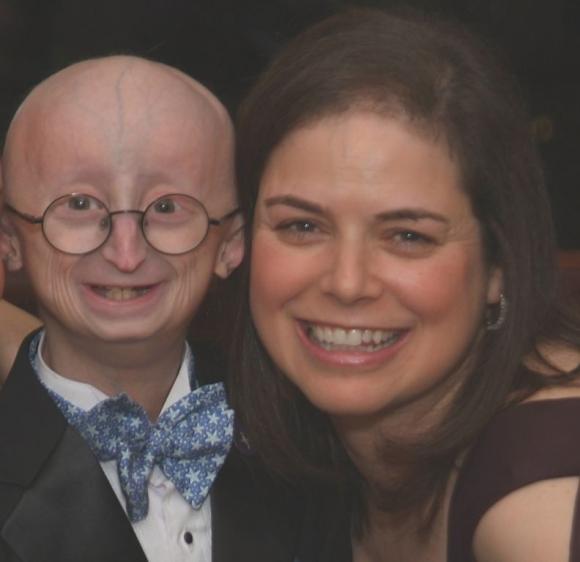PROVIDENCE, R.I. [Brown University] — A new study showing that the antibiotic rapamycin can decrease levels of the toxic progerin protein from the cells of children with the fatal, advanced aging disease progeria is very encouraging news, said Leslie B. Gordon, a Brown associate professor (research) of pediatrics and the mother of Sam, a 14-year-old boy who has the disease.
“These findings are incredibly exciting,” said Gordon, who is also medical director of The Progeria Research Foundation and is affiliated with Hasbro Children’s Hospital, Children’s Hospital of Boston and Harvard University. “This is a brand new way of trying to decrease or eliminate the disease-causing protein in progeria.”
The Progeria Research Foundation, which Gordon co-founded, helped fund the research published June 30 in the journal Science Translational Medicine. Its senior author is Francis Collins, who directs the National Institutes of Health and who worked with Gordon about a decade ago to identify the single mutation that causes progeria.
The finding with rapamycin could lead further along the path toward developing a treatment for the rare disease, Gordon said, such as eventual clinical trials. Collins’ team, however, conducted its research with progeria cells in a lab.
Gordon said it was no coincidence that a drug like rapamycin, which has been shown to extend lifespan in mice without progeria, could also be helpful against the disease. Everyone produces a little progerin and it builds up as people age. Progeria therefore, is directly related to normal aging and the cardiovascular consequences of it.
That’s a perfect reason to fund rare-disease research, even though only about 250 children worldwide have progeria, she said.
“Progeria has informed us about the natural aging process [and] progeria has informed us about the cardiovascular diseases of aging in ways that we could never have understood if we didn’t look at children with progeria — if we didn’t care about them,” Gordon said.
The progress against progeria in the 11 years since the Progeria Research Foundation was established has been tremendous, Gordon said.
“There was essentially no hope for families, there was no hope that we could help children with progeria, with this 100 percent fatal premature aging disease,” she said. “Coming from there to here is quite incredible.”

